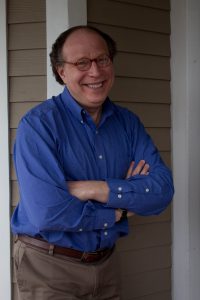Many cancer survivors want to learn about cancer beyond what’s they’ve experienced first-hand. Further, they want to use that education to make a contribution to others affected by cancer.
I’ve had the good fortune of attending several national cancer conferences in pursuit of that goal.
In this article, I’ll describe my experiences with the programs for advocates that are associated with the annual meetings of three major organizations: the American Association of Cancer Research (AACR), the American Society of Clinical Oncologists (ASCO), and the San Antonio Breast Cancer Symposium (SABCS).
Each program provides scholarships that are targeted to survivors who are willing to study the science of cancer in a concentrated manner and then share what they have learned with others in their home communities and/or advocacy organizations.
The mechanism for applying for the scholarships is specific to each organization but, in general, applications are submitted on-line and are awarded through a competitive process.
The annual American Association of Cancer Research conference examines such broad topics as immunotherapy, biomarkers, and “big data.” Most sessions are applicable to all types of cancer. More PhDs than MDs attend, but there are plenty of the latter as well. This year, 28,000 people attended in total.
The AACR advocacy track is the Scientist-Survivor Program (SSP). Advocates are broken into small groups, assigned topics to research, and then work with scientific advisors and seasoned advocates.
It’s hard work, but rewarding. You become connected with your teammates and learn a surprising amount about the “big picture” of cancer research. For many advocates, it’s their first opportunity to think more broadly about cancer, as opposed to focusing on their own specific type of cancer.
The annual meeting of the American Society of Clinical Oncologists is even a larger conference, with nearly 40,000 attendees, most of whom are practicing oncologists. There’s a focus on clinical trials and information that oncologists can use in their clinical practices. Compared to AACR, ASCO sessions tend to focus on specific types of cancer. There’s a breast cancer track, gastrointestinal cancers track, etc.
Scholarships are available for advocates, and advocates are generally free to attend those sessions that interest them. There’s an advocate lounge that you can connect with other advocates, exchange ideas, and recharge your batteries.
The San Antonio Breast Cancer Symposium, of course, focuses specifically on breast cancer, and is smaller in size with approximately 8,000 attendees. The patient advocate scholarship program is through the Alamo Breast Cancer Foundation. Most successful advocate applicants will be graduates of Project LEAD which is offered through the National Breast Cancer Coalition.
A highlight of the SABCS is the nightly “Hot Topic Mentor Session” in which leading scientists review the day’s highlights and answer questions from advocates.
All three national conferences are educational and occasionally overwhelming. You get to immerse yourself in cancer research for a few days and connect with like-minded colleagues. You’ll likely leave feeling both exhausted and energized. And you’ll want to come back.
Read more about Bob’s experience at the AACR meeting.
Bob Riter is a Patient Advocate with The Cornell University Physical Sciences Oncology Center. He is a long-time OncoLink blogger and the former Executive Director of the Cancer Resource Center of the Finger Lakes, an organization providing support, information, and community to people affected by cancer in and around Ithaca, NY. Bob’s involvement with cancer support and education began in 1996 when he was diagnosed with breast cancer. A native of Huntington, WV, Bob received his undergraduate degree from Oberlin College and a master’s degree in health services administration from the University of Michigan.
